Do you think of Reiki as "humming and waving [your] arms as if shooing evil spirits" or "rubbing a quartz bowl with a wand"?
I don't, and I'm a Reiki Master in three lineages. But now hundreds of thousands of newspaper readers, radio listeners and television viewers may have that unfortunate false impression, because this week the Associated Press described Reiki that way in a story that got picked up all over the place and prompted several of our readers to let us know.
The story was the first installment in a series "examining the use and potential risks" of alternative medicine," and it's clear from the introduction that this is not neutral or balanced reporting. Just look at how it's introduced:
"Ten years and $2.5 billion in research have found no cures from alternative medicine. Yet these mostly unproven treatments are now mainstream and used by more than a third of all Americans."
That is to say, let's start with an unreasonable premise -- that the only way a treatment can have any value is if it provides a cure -- and then attack natural healing modalities, which do not promise cures, for not meeting that false standard. Wow, what investigative journalism!
Although a few local editors changed a word or two here and there, the story has remained the same everywhere it ran. Only the headlines have changed:
And so on and so on, ad nauseum.
The report was distributed by the news service along with a file photo of two Reiki practitioners working in the trauma unit at the University of Maryland hospital, identified as being from October, 2008. We suspect it may actually be from October, 2007, when it (or a very similar photo) was used to illustrate a Baltimore Sun article headlined "From a Curiosity to a Cure" (the article is no longer available on the Sun's web site) Here's what we wrote about it at the time:
"The otherwise excellent article is not well served by the headline, "From a Curiosity to a Cure," which attributes more power to Reiki than its practitioners do -- Reiki is not a cure."
Here's how medical Reiki expert
Pamela Miles addressed the issue at the Integrative Healthcare Symposium earlier this year:
"It’s a healing practice, so healing, we’re not talking about cure. We’re talking about healing. Cure requires an outside authority to let us know if that’s happening. Healing is something that we have to decide for ourselves, right? It’s not dependent on tests. It’s subjective. And it’s ongoing. . . Reiki balances people, and that can help your bodies address whatever symptoms or conditions, or support the conventional approach to cure."
One of the Reiki-endorsing medical professionals interviewed for the report even says, on camera, that "We don't tell them that it's going to cure them. . . ."
In fact, the distinguishing characteristics common to all so-called "alternative" healing modalities -- from acupuncture to Reiki to chiropractic to aromatherapy to herbal remedies to massage -- specifically rule out any mention of "cures." Ethical, law-abiding alternative, complementary, or integrative medicine practitioners do not diagnose, they do not prescribe, and they don't promise to cure anything.
And there are many medical conditions that doctors treat but cannot cure: my mother-in-law's congestive heart failure, for example. She's on a dozen prescription medications and now has a pacemaker, but nobody's claiming that any of those treatments will restore her heart to full health. Yet the Associated Press isn't investigating any of that.
A generation ago, women with breast cancer were routinely subjected to the mutilation of radical mastectomy, which was considered necessary to cure them. It didn't. Children underwent tonsillectomies and women got hysterectomies as a routine rite of passage, with the promise that they'd be healthier as a result. That practice is no longer so common. On doctors' orders, patients took prescription drugs that are now considered so dangerous they're no longer on the market -- and more likely than not, many of the drugs now being prescribed will meet the same fate. And the AP wants us to wonder whether Reiki is "safe."
For the record, Reiki is completely consistent with the
Hippocratic oath: it does no harm. The news reports suggesting it might not be safe never specify what the danger might be, except the false premise that it might somehow keep someone from seeking medical care. But Reiki is not a substitute for medical care, and I've never met or heard of a Reiki practitioner who claimed it was.
So why the attack on Reiki and other natural modalities? Having spent decades of my life as a reporter, I know that, for one thing, journalists love to play not only the skeptic, but the cynic. It makes them feel like they're better than other people, and it makes them feel more like the classic caricature of the trenchcoat-wearing, cigar-chomping, hard-bitten reporter. And they get subtle but persistent reinforcement to play that role, especially when dealing with something that competes with their advertisers. Look at the advertising in any magazine, newspaper, or television newscast: prescription drug ads are what keeps the news organizations going. There will always be more money in pills and procedures than in prevention or in natural remedies, so these investigations based on false premises help everyone in the news business feel like they're doing their jobs, without threatening (or even questioning) the hand that feeds them.
A more important question is, what can we as Reiki practitioners do about it? We need to get our story straight, and we need to be clear about what is Reiki and what isn't. Sound healing, whether with crystal bowls or other means, is a recognized modality and it may be helpful: it's just not Reiki. Some Reiki practitioners also use aromatherapy -- but aromatherapy isn't Reiki. The AP didn't force the practitioners in Baltimore to wave their arms or hum -- that's how they represented Reiki. So we have to accept our own responsibility for these unfortunate misconceptions.











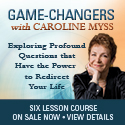
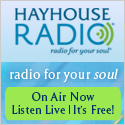





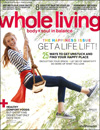


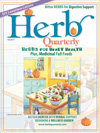
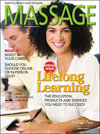
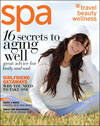
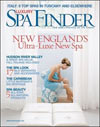
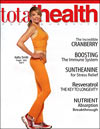






5 Comments:
Just found this enlightening and enjoyable take on the AP's alternative medicine article at YogaDork. I'm glad to see someone else speaking out about this.
I appreciate you bringing this to our attention. Let's be careful though to hold the vibration of Reiki healing this world needs, and not continue to worry about people's perception of Reiki, given the recent news.
The Spirit has a way of continuing to flow as long as we allow it. And we do that by being in the flow, not fighting what we don't like, and being living examples of love, healing, compassion, and Divine Light.
May the world be totally healed! :-)
Michael, I appreciate what you're saying, but. . .
The Reiki Digest's purpose is to serve the global Reiki community just as an old-fashioned community newspaper would, and that means covering the news about Reiki without regard to whether it is bad or good. When I see sloppy reporting, and the effect it can have, I will continue to challenge it, just as I will continue challenging misrepresentations of Reiki, whether by the media or by practitioners themselves. That's not worrying about it, or fighting it -- it's just covering it.
Thanks for contributing your thoughts on this.
Rose at violetrosereiki.com wrote:
Kudos Ms. Dagley on coming out, as I did, on that horrific article misrepresenting reiki. It is unfortunate that there are so many people out there practicing God knows what and giving it the term reiki, not to mention the ego driven who add this and that to make it appear they are far more knowledgeable than anyone else. It’s very hard to just practice reiki for what it is, reiki, and hear more nonsense about it than truth and fact. You Reiki Update Training Class is brilliant!
I feel that as responsible, ethical masters and practitioners it is our duty to be diligent in setting the record straight. It’s a very positive thing that the Reiki Digest has Pamela Miles on board. Keep up the great work and doing what you do.
(Thanks, Rose! Actually, Pamela isn't part of The Reiki Digest -- she's welcome to write for us, though. -- Janet)
Camelia A. Wright wrote:
Hello,
This is my first time responding and contributing to an article.
Let me state immediately I am not in the least bit surprised at what is occurring. First and foremost the REIKI ENERGY is working,and it seems to me that the medical community is over re-acting.
We do not state that we cure,what we may say is that it alleviates. For me as a REIKI ENERGY practioner it helps me tremendously with arthritic aches and pain.
When the mind is calm the body follows. REIKI ASSISTS IN RELAXING THE BODY.
It is most unfortunate that it is now receiving negative press. My hope has been that we might possibly be able to help and assist some of our service people coming home with such horrific injuries and emotional upsets. It could possibly help keep them from needing to many prescription drugs. Is it possible that is the problem REIKI may help keep people from needing prescription drugs? That is a thought.
Cam
Thanks, Cam!
Post a Comment
<< Home